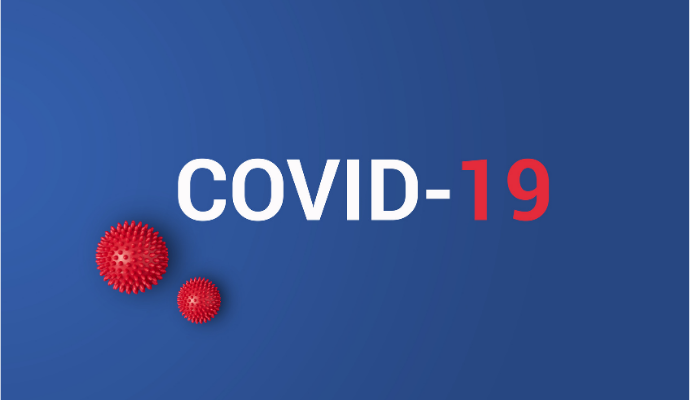Pfizer, BioNTech Give US 500M Doses of COVID-19 Vaccine
In other COVID news, Moderna files for FDA emergency use authorization for its COVID-19 vaccine and Roche receives CE mark for its SARS-CoV-2 Antigen Self-Test Nasal.

Source: Getty Images
- Pfizer and BioNTech will provide the US government with 500 million doses of their COVID-19 vaccine; the allotment includes 200 million doses in 2021 and 300 million doses in 2022 at a not-for-profit price.
The initiative further supports efforts to address the increase of infection around the world and to help end the COVID-19 pandemic. Therefore, the government will provide the vaccine doses to 92 low and lower middle-income countries and organizations, as well as 55 member states of the African Union.
The government and the companies will work with COVAX to ensure these vaccines are delivered to the specified countries efficiently and equitably.
“Our partnership with the U.S. government will help bring hundreds of millions of doses of our vaccine to the poorest countries around the world as quickly as possible. We must ensure expedited access to vaccines for all,” Albert Bourla, chairman and chief executive officer at Pfizer, said in the announcement.
“I want to thank President Biden for his leadership in protecting the least advantaged of our global neighbors. Fair and equitable distribution has been our North Star since Day One and we are proud to do our part to help vaccinate the world, a massive but an achievable undertaking,” Bourla continued.
READ MORE: Abbott, Walgreens Increase Rapid COVID-19 Testing in Pennsylvania
The allocated doses are part of Pfizer and BioNTech’s previously announced pledge to provide 2 billion doses of the COVID-19 vaccine to low- and middle-income countries over the next 18 months.
Deliveries of the 200 million doses will begin in August 2021 and continue throughout the year. The 300 million doses for 2022 will be delivered between January and the end of June 2022.
There is also an option for the government to acquire additional doses in 2022.
To date, Pfizer and BioNTech have shipped 700 million doses to over 100 countries or territories around the world. The also companies have direct supply agreements in place with 122 countries and discussions regarding COVID-19 vaccine supply are ongoing with many more.
The companies expect to manufacture up to 3 billion doses of the COVID-19 vaccine this year.
Moderna Files EUA for Vaccine in Adolescents
READ MORE: Moderna, UNICEF to Supply COVID-19 Vaccine on Behalf of COVAX
Moderna recently announced that it has requested an emergency use authorization from FDA for its COVID-19 vaccine in adolescents.
At the end of May, the company’s vaccine met its primary immunogenicity endpoint and successfully bridged immune response to the adult vaccination in the TeenCOVE study.
In the study, 3,700 participants 12 to less than 18 years of age received either two 100-microgram doses of the vaccine or placebo. The primary endpoint of the study was non-inferior immunogenicity versus the Phase 3 adult study comparator group.
Researchers identified no significant safety concerns and adverse events were mild to moderate in severity.
“We are encouraged that the Moderna COVID-19 vaccine was highly effective at preventing COVID-19 and SARS-CoV-2 infection in adolescents,” Stephane Bancel, chief executive officer of Moderna, said in the announcement.
READ MORE: Emergency Use Authorization Granted for GSK-Vir COVID-19 Antibody
“We have already filed for authorization with Health Canada and the European Medicines Agency and we will file with regulatory agencies around the world for this important younger age population. We remain committed to helping to end the COVID-19 pandemic,” Bancel continued.
Roche Receives CE Mark for SARS-CoV-2 Antigen Self-Test
Roche recently announced that it has received CE mark for its SARS-CoV-2 Antigen Self-Test Nasal for at-home testing. The test will be available in packs of five in countries accepting the CE mark through pharmacies and other locations.
With the CE Mark, the COVID-19 test has received official approval following the traditional registration pathway and can now also be used in markets that have not established regulatory exemption pathways.
Individuals are able to perform the test at home using a nasal swab without special training or the supervision of a healthcare worker. However, they must be at least 18 years old. Results of the test are available in about 15 minutes.
Along with the self-test, Roche is offering NAVIFY® Pass.
NAVIFY® Pass is a digital solution that allows individuals and healthcare professionals to remotely store, display, and share their COVID-19 test results and vaccine status through a personalized QR code.
“As the world prepares to reopen, high-quality, home-based testing will play an important role in the battle against the pandemic,” Thomas Schinecker, CEO of Roche, said in the announcement.
“Regular self-testing at home can reduce pressure on healthcare systems. It can quickly identify people with the highest potential to be infectious so they can take immediate action to seek medical advice, manage their infection and protect others,” Schinecker continued.
